So I am off to university, to do a masters, next week! I’m very nervous, particularly as my undergraduate degree ‘university experience’ was not a good one, and led to a real decline in my mental and physical health. But I am also excited! University isn’t for everyone, but being a mental health nurse has been my dream for a long time, and this is an important part of my journey to get there. I’m also excited meet new people, and just for the chance to learn new things!
HOWEVER, I am also aware it will be hard, and stressful, and that living independently is going to be a big change. Unlike when I began my undergraduate degree, I have tried this time round to really think about the support I need, and make plans, to ensure I make it a success. Going to university is hard – a study showed autistic students are less likely to complete their degree than any other disability group (North East Autism Society, 2023), and prior to Covid, another study (Gurbuz et al., 2019) suggested drop-out rates of autistic students to be as high as over 60%.
So, I wanted to use this post to outline some support systems available for autistic students:
(Financial)
– Local education grants. Depending on your age (I unfortunately am over 25 so can’t apply for my local one), there may be a local grant-making trust providing one off payments for support at university to people with disabilities and/or who are on low income. For my undergraduate I was given money to support me while living independently from a local trust because I am from a low income household, but they also gave me some extra money to help me buy a lightweight tablet to take to university, and towards taxis as I struggled with public transport, and physically had difficulties walking.
– Charities. There are numerous organisations that provide support for disabled people, sometimes specific to those pursuing education, but also for any aspect of daily life. I often check this website: https://www.disability-grants.org/
– DSA. DSA is ‘disability student allowance’ and isn’t technically financial, in that they do not provide you with actual money. However, they can provide you with software (e.g. for reading PDFs, text-to-speech dictation, mindmapping and organisation), tools to support you to work/study (noise cancelling headphones, recording software), and provide recommendations to your university for exam adjustments, classroom adjustments, and support (e.g. extra time in exams, having physical handouts for lectures, or having a mentor to see you weekly). You apply for DSA through student finance, and it can be done before or after you start!
(General)
– University inclusion/disability teams. Every university will have an inclusion/disability team who can offer advice and support – you don’t need to have DSA to see them. They can even help you organise DSA! These teams will vary in what they do, depending on the university, but they can usually offer check ins with you, help you if you have specific issues with your studies, and answer questions you have about university. Whether suggested by DSA or not, they can also offer study skills sessions, to help with things like organising yourself, exam stress, and academic writing, and mentors (this is a more personal, individual level of support, to regularly meet with you and help you with anything you’re finding difficult, whether it is directly related to studying, or more to do with daily life while at university)
– Exam and classroom adjustments. These will be organised by your university’s disability team, but they might recieve suggestions from your DSA assessment, if you have had one. Don’t think of these as ‘milking it’ or ‘being weak’ – these adjustments are simply changing things so you can do your best, and they’re only ‘needed’ because the world is set up for neurotypical people! Examples of exam adjustments include being allowed rest breaks, extra time, or a computer rather than having to write. Examples of classroom adjustments include being emailed lecture slides in advance, being able to leave the room if overwhelmed, and having discussions before groupwork or before having to do a presentation.
– Friends and family. Your friends and family can also provide support! Having a weekly or daily phone call with your loved one so you can vent, or just let them know how you are, is invaluable.
Other things you should also think about:
– Social services and adult mental health teams. I recently got back in touch with social services, as I feared that being involved with them would mean being involved with adult mental health teams too, and I haven’t had great experiences with my local team (this is not to say you shouldn’t work with your local mental health team – they may be great!). However, social services are now providing me with lots of support to help me while at university, including helping me liase with my university, funding me therapy, and recommending supported living arrangements.
– Accomodation and independent living. Where you live while at university can make a huge difference as to how successful it all is. Independent living can be incredibly difficult, on top of the stress of studying, and so it’s worth thinking about all your options. If your university is close by, you could commute, for example, and while living in halls is the ‘norm’, you could opt for a private studio. You might want to be living on campus, and lots of universities are happy for disabled students to continue to live in halls in the second and third years of their degree. If you are with social services, they may look into supported living (this can be anything from having support workers visit regularly to living in a supported living set of accomodation with 24/7 support) arrangements
I hope this helps! It’s so important to seek support – please don’t be afraid to ever ask for help.
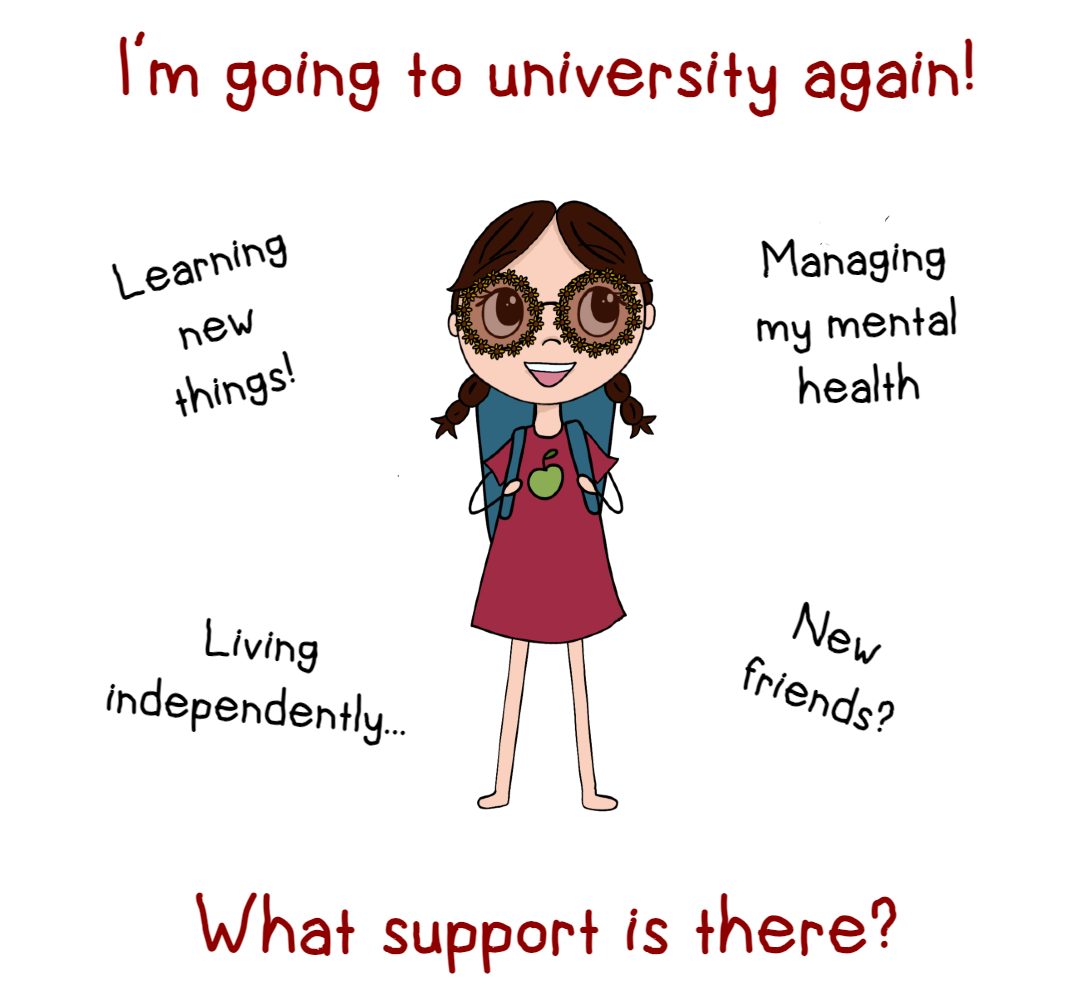
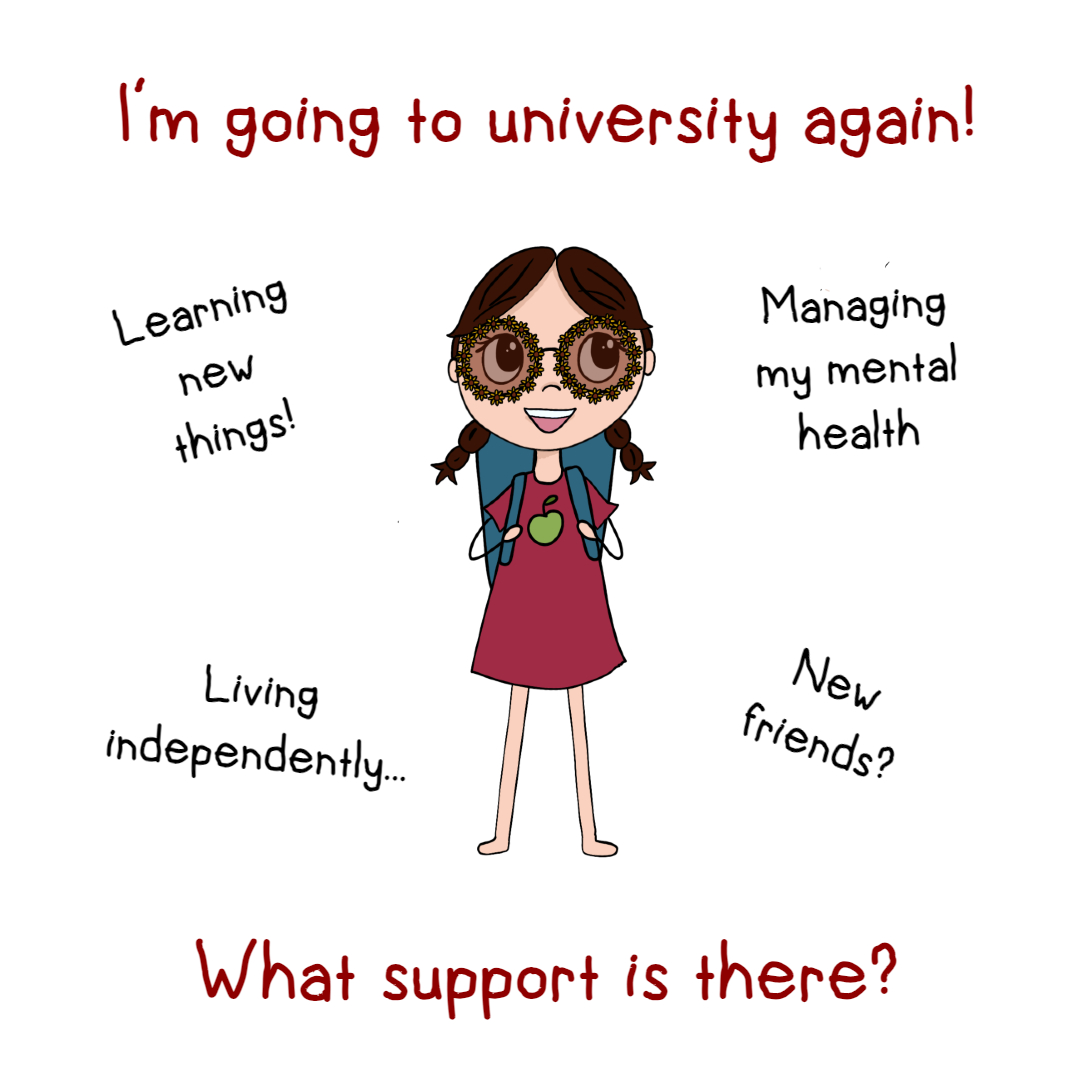
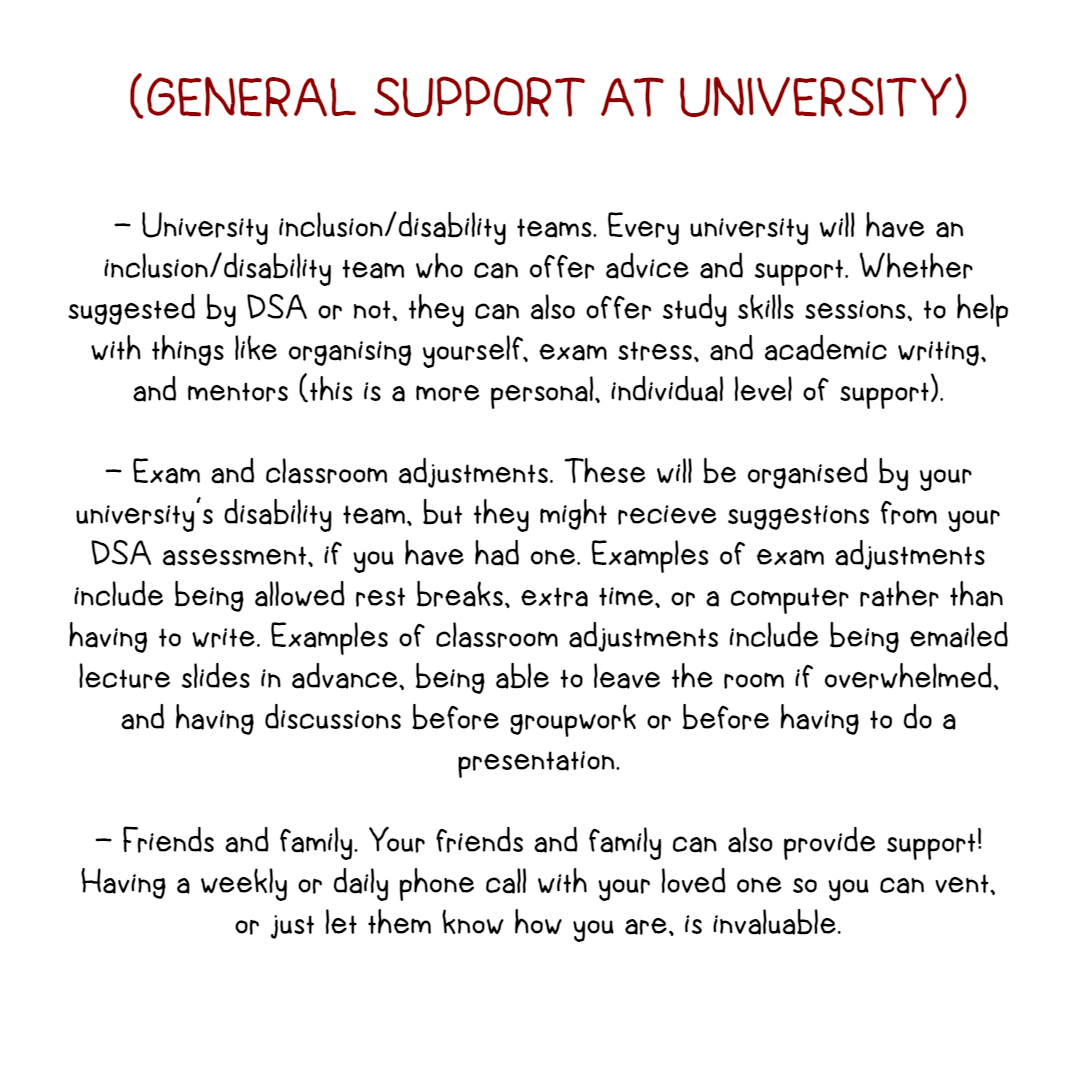
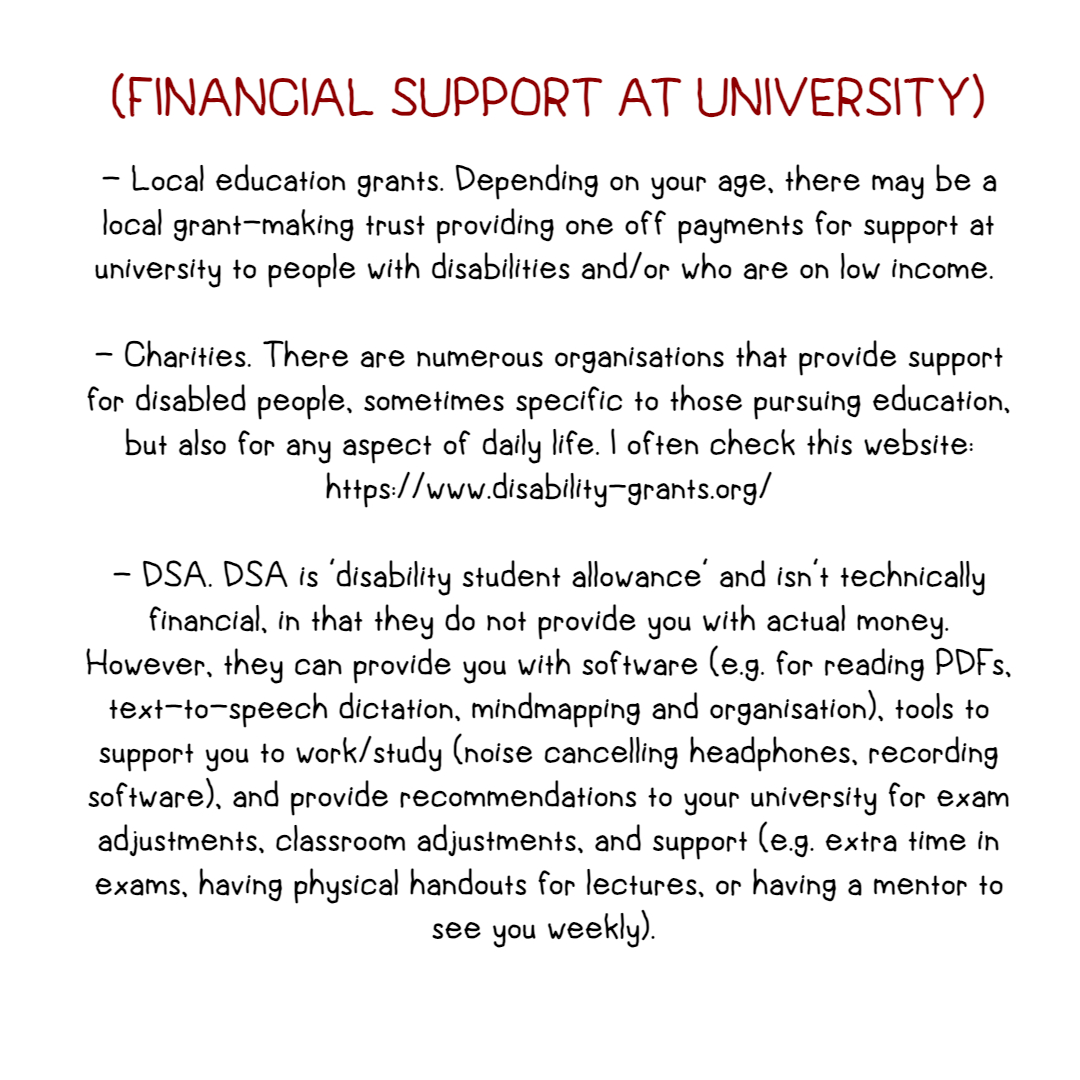
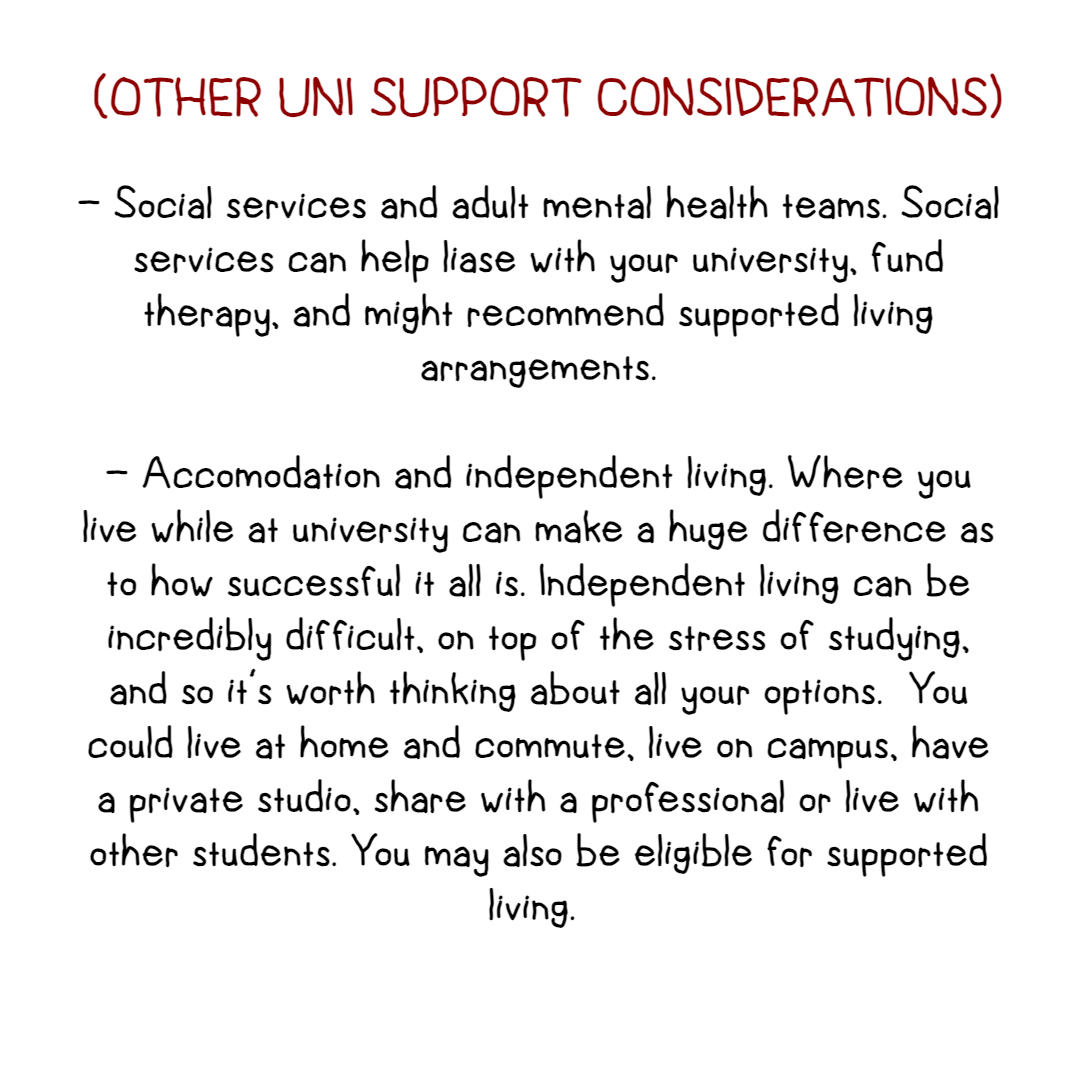
Leave a Reply